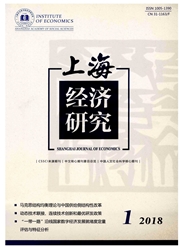

 中文摘要:
中文摘要:
2003年以来,国家多次通过土地政策、税收政策、金融政策等措施以求对我国过热的房地产市场进行调控,虽取得了一定的成效,但房价上涨势头并没有得到有效控制,政策实施效果与预期目标尚有一定的偏差。本文以上海为例,结合公共政策评估理论和方法,对房地产宏观调控效果进行评估,探讨调控政策的成效与不足。评估结果显示,上海房地产调控政策取得了一定效果,然而在全国范围内,尤其是2009年房价的上涨状况,表明我国房地产宏观调控政策仍存在短期性、相机性、非均衡性等问题。笔者认为,房地产宏观调控政策应建立相应的长效调控机制以稳定市场主体预期,在提高市场绩效、建立有效房地产市场的同时采取相应的激励机制,兼顾经济效率与社会公平,引导住房的有效供求,从而促进房地产市场的稳定健康发展。
 英文摘要:
英文摘要:
Since 2003, our state has taken some measures to regulate the overheated real estate mar- ket for many times,including the land policy, tax policy, monetary policy measures, but the trend of housing prices has not been effectively controlled, and the implement of policies deviates the objectives. In this paper, we set Shanghai as the example, based on evaluation of public policy, to assess the effect of macro-economic control on real estate in Shanghai. Evaluation results show that Shanghaig real estate regulatory policy has achieved some results, but at the national level, especially housing prices rising sig- nificantly in 2009, macro-economic control on real estate is still short-term and discretionary. The author believes that we should establish long-term effective control mechanism to stabilize the expectations of market players, then can improve the performance of real estate market, take the appropriate incentives, both economic efficiency and social equity, and guide housing effective supply and demand, so as to promote stability and healthy development of real estate market.
 同期刊论文项目
同期刊论文项目
 同项目期刊论文
同项目期刊论文
 期刊信息
期刊信息
